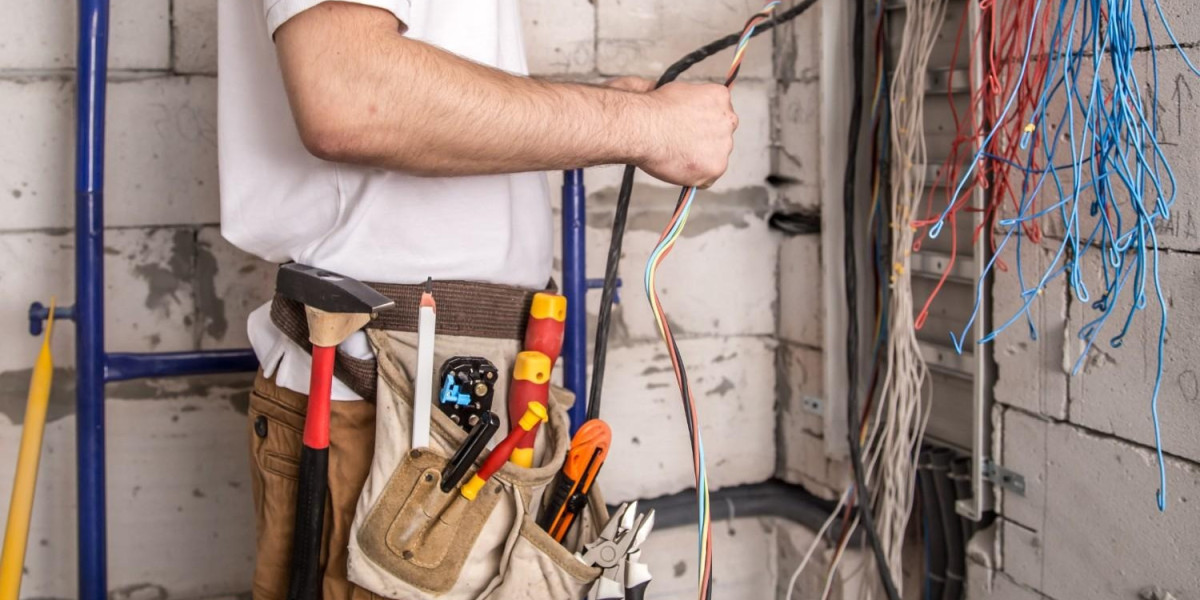Factory environments are complex ecosystems where machinery, manpower, and processes work in tandem to maintain productivity. But behind this continuous motion lies a critical foundation: electricity. Properly installed and maintained electrical systems are not just a matter of efficiency — they are a cornerstone of operational safety. Without this backbone functioning securely and reliably, factories are exposed to significant hazards that can impact production, employee well-being, and compliance with legal standards.
Electricians play a vital role in ensuring that every circuit, panel, and cable supports safe, uninterrupted operations. This article explores how industrial electricians contribute to maintaining operational safety in factories, and why their work is indispensable in modern manufacturing environments.
Understanding the Industrial Electrical Landscape
Industrial environments have far more complex electrical needs than residential or commercial spaces. Factories often rely on high-voltage systems to power heavy machinery, maintain HVAC operations, support lighting, and ensure round-the-clock production. These systems must be robust, adaptable, and designed for resilience.
Unlike a domestic setup, a factory’s electrical infrastructure includes:
- Three-phase power distribution
- Industrial-grade circuit protection
- Control panels for automation and process management
- Emergency backup systems
In such environments, the slightest electrical fault can cause machine malfunctions, fires, or even injury. This is where regular inspections and strategic upgrades become essential. An experienced electrician in Cardiff can assess the unique demands of factory operations and implement systems that prioritise both efficiency and safety.
Common Electrical Hazards in Factories
To safeguard both equipment and human lives, identifying and mitigating electrical hazards is a crucial responsibility of factory management and qualified electricians.
Here are some of the most common risks found in factory settings:
Overloaded Circuits
Factories often expand operations without updating their electrical load calculations. This can lead to overheating wires, blown fuses, and fire risks.
Worn or Exposed Wiring
Ageing installations or environments with constant vibration and movement can lead to frayed insulation and exposed conductors, increasing the likelihood of short circuits or shocks.
Poor Earthing and Grounding
Improper grounding means excess electricity isn’t safely diverted away from equipment or people, which can prove deadly during faults.
Water Ingress
Factories with washing areas, humidity, or leaks run a high risk of water coming into contact with electrical points, particularly sockets and junction boxes.
Professional electricians in Cardiff are trained to identify these risks and implement long-term solutions, helping factories maintain a safe and compliant workplace.
The Role of Factory Electricians in Preventive Maintenance
Preventive maintenance is not just about avoiding system failure; it’s about proactive risk management. Electricians conduct routine checks to identify signs of wear, degradation, or overload long before they escalate into danger.
Typical Preventive Measures Include:
- Thermographic Imaging: This detects hotspots that may indicate a potential failure in wiring, connections, or breakers.
- Load Testing: Ensures electrical systems are not exceeding capacity, preventing tripped circuits or burnt components.
- Component Upgrades: Replacing worn parts, corroded wiring, or obsolete switchgear improves both safety and performance.
Preventive strategies help reduce downtime, protect equipment investment, and — most importantly — reduce the risk of harm to employees working near or with electrical machinery.
Compliance with UK Safety Standards
The UK has stringent regulations around electrical safety in industrial settings, designed to protect both employees and infrastructure. These include the Electricity at Work Regulations 1989, the Health and Safety at Work Act 1974, and specific requirements laid out in BS 7671 (IET Wiring Regulations).
Key Requirements:
- Portable Appliance Testing (PAT): Ensures all plug-in equipment meets operational and safety standards.
- Electrical Installation Condition Reports (EICRs): These are required periodically to certify the safety of fixed electrical installations.
A qualified electrician in Cardiff will understand the legal obligations of factories and ensure that all systems meet compliance — helping businesses avoid hefty penalties, insurance complications, or worse, workplace incidents.
Emergency Response and Fault Resolution
No matter how well a system is designed, faults can still occur — especially in environments as demanding as factories. Quick response from a skilled electrician is vital in limiting the impact of these incidents.
In Emergencies, Electricians Help:
- Diagnose electrical faults with precision
- Isolate affected systems to prevent wider disruption
- Carry out emergency repairs to resume operations safely
In many cases, electricians collaborate closely with builders in Cardiff when structural or system adjustments are needed after an electrical fault. This teamwork ensures the factory is restored to full operational capacity as quickly and safely as possible.
Supporting Machinery and Equipment Installation
Every time a new machine is introduced into a factory, it must be connected with care. An oversight during installation can lead to system imbalance, safety risks, or inefficiencies in performance.
Electricians are responsible for:
- Assessing load requirements for new machinery
- Configuring dedicated circuits and surge protection
- Ensuring safe spacing and ventilation around units
- Installing emergency cut-off systems or safety switches
The safe integration of new equipment often requires coordination with other professionals, including structural engineers and builders in Cardiff if modifications to factory infrastructure are needed. This multidisciplinary approach ensures the facility can safely support operational upgrades.
The Role of Electricians in Energy Efficiency
Safety and energy efficiency often go hand-in-hand. An overburdened or poorly optimised system not only risks failure but wastes energy, increasing costs and carbon output.
Electricians can help improve efficiency by:
- Conducting energy audits
- Replacing outdated lighting with energy-efficient alternatives (e.g., LEDs)
- Installing programmable logic controllers (PLCs) or automation tools to optimise power use
Smart electrical systems reduce unnecessary load, which not only protects machinery but contributes to a safer, cooler operating environment. In a time when sustainability is increasingly important, energy-aware installations by a skilled electrician in Cardiff can support both regulatory and cost-saving goals.
Training and Awareness for Factory Staff
Even the most advanced electrical system can become a hazard if mishandled. That’s why electricians play a role beyond installation and repair — they also contribute to staff training and awareness.
Key contributions include:
- Conducting electrical safety briefings
- Advising on proper use of equipment and shutdown protocols
- Ensuring clear labelling on panels, wires, and isolation points
These efforts foster a culture of safety on the factory floor, where staff understand the importance of reporting faults, respecting access restrictions, and avoiding shortcuts that compromise safety.
Coordinating with Other Construction and Maintenance Professionals
Factories are dynamic spaces — expansions, repairs, and refurbishments are common. During these phases, electricians must coordinate with a range of trades to maintain overall operational safety.
Collaboration Might Include:
- Working with HVAC technicians to ensure power loads are balanced
- Liaising with plumbers to avoid electrical lines near water supply areas
- Partnering with builders in Cardiff to ensure any new construction aligns with electrical infrastructure
Such collaboration ensures that updates or changes to the facility don’t compromise the safety or efficiency of electrical systems. Integrated planning helps maintain business continuity and protects long-term operational stability.
Conclusion
Maintaining safety in a factory environment goes far beyond installing wires and switches. Electricians are instrumental in safeguarding every aspect of industrial operation — from machinery performance to employee wellbeing. Their ongoing role in inspections, installations, and emergency support cannot be underestimated.
When combined with the expertise of other professionals, such as builders in Cardiff, electricians help form a robust safety net that protects the productivity and longevity of any factory.
If your facility in Cardiff needs comprehensive support for electrical safety and structural coordination, AO Builders Cardiff offers integrated solutions you can depend on.



